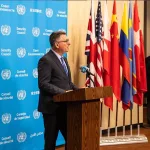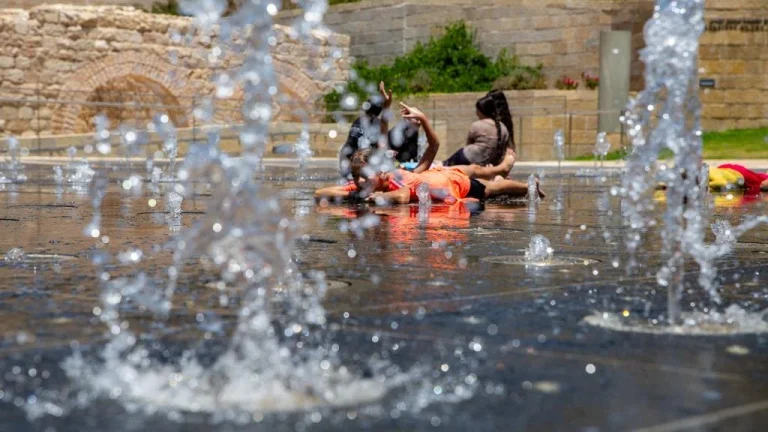Jerusalem, 7 August, 2025 (TPS-IL) — As Israel braces for an intense heat wave set to begin Friday, national authorities are ramping up preparations to safeguard the public from extreme temperatures and widespread humidity expected across the country. Emergency services, energy providers, and environmental agencies have issued warnings and implemented precautionary measures as forecasters predict severe to extreme heat stress—even in typically cooler inland and mountainous regions.
“It will be long and difficult,” said meteorologist Lior Sodri. “This is a seasonal Persian trough, which brings with it northeasterly winds from the Iran region. In some areas, an increase of almost 10 degrees above the seasonal average is expected.” According to Dr. Amir Givati, director of the Meteorological Service in Beit Dagan, extreme heat stress will impact the entire country, with temperatures approaching 40°C in many places. He emphasized that this wave is unique for its combination of high heat and unusually widespread humidity.
Temperatures are expected reach as high as 48 degrees in the Jordan Valley, 40 degrees in jerusalem
If temperatures rise as expected, mountain regions may exceed 40 degrees for the first time since 2020. Still, this event is not considered historic, and it does not break national heat records.
In a rare turn for August, forecasters also predict possible localized rainfall on Saturday and Sunday, particularly in the southern Negev and near the Israel-Egypt border. These showers could be heavy and may include thunderstorms.
Saturday and Sunday are expected to mark the peak, with oppressive humidity on the coastal plain and stifling heat further inland. “On the coastal plain, temperatures will not be particularly high, but the humidity will increase and increase the feeling of congestion,” added Sodri.
The Israel Meteorological Service predicts the heat will persist into next week, with potential for localized rain in the east and south on Sunday afternoon. The combination of intense heat and humidity poses a serious health risk, especially to vulnerable populations such as infants, the elderly, and people with chronic conditions.
Magen David Adom (MDA) emergency responders are on high alert. “The heat wave that is expected to hit the country during the coming week requires public caution and vigilance,” said Dr. Rafael Strogo, MDA’s Deputy Chief of Medicine. “I recommend drinking plenty of water and not spending extended periods of time in direct sunlight. It is especially important to pay attention to babies and toddlers traveling in cars—they should never be left in a closed vehicle, not even for a minute.”
MDA spokesman Zaki Heller noted that in past years, heat-related injuries have led to tragedy. “Our teams have treated many cases of heat injury—some of which ended in tragedy,” he warned.
The Israel Electric Company is also bracing for a surge in electricity demand. Officials urged people using life-saving medical devices to secure backup power or plan for evacuation in the event of an outage. Meanwhile, the Nature and Parks Authority has prohibited lighting fires in national parks to reduce the risk of wildfire.
Authorities continue to advise the public to stay indoors during the hottest hours, remain hydrated, avoid unnecessary outdoor activity, and follow updates from official weather services.
Temperatures will also soar in Cyprus, Egypt, Lebanon, Syria and Jordan.































